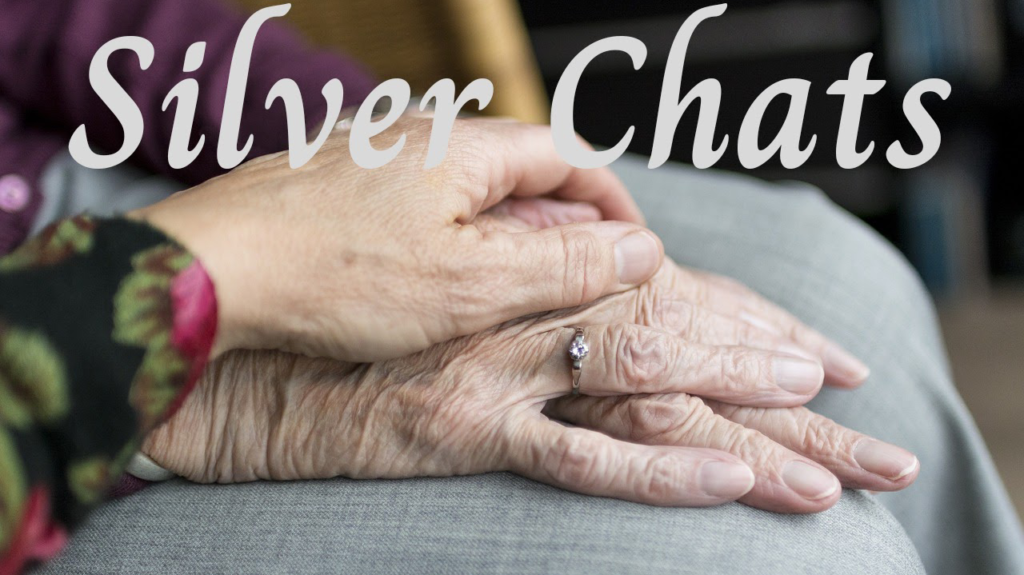I believed for a long time that religion and spirituality were the same; to have a spiritual practice, you had to have a religious affiliation. I now understand they are separate practices. Religion is a set of organized beliefs and practices, often shared with a community of like-minded individuals. Spirituality tends to be an individual practice set around beliefs and practices seeking the meaning of existence and obtaining a peaceful and calm life.
“Research has shown that religion, spirituality, and/or belief are intertwined with health, well-being, and quality of life, particularly with regards to how people deal with ill health and other challenges they might face.” (https://www.ncbi.nlm.nih.gov/pmc/articles/PMC6319229/)
Religion is faith-based support for aging individuals. Religious institutions, such as churches, temples, and mosques, provide a network for social and emotional support. Religion is important in aging, providing a sense of purpose and religious-based coping mechanisms. Research has shown older adults with a religious affiliation are less likely to develop depression and anxiety and are better able to cope with illness and chronic disease. The three aspects of religious involvement are:
- A positive and hopeful attitude about aging, life, and illness.
- A sense of meaning and purpose in life.
- A greater ability to cope with illness and disability associated with aging.
Being part of a religious community can also help prevent loneliness and feelings of isolation. A recent study conducted by the Nurses Health Study measured 75,000 seniors over twenty years and reported that attending a weekly religious service was associated with a 33% lower all-cause mortality rate, a 27% lower cardiovascular mortality rate, and a 21% lower cancer mortality rate. Older adults demonstrate the highest levels of religious participation of any age group; religious institutions frequently offer elder support services; and religious traditions offer values about aging that support wellness. https://spssi.onlinelibrary.wiley.com/doi/abs/10.1111/j.1540-4560.1995.tb01329.x
There are other reasons to consider the significant relationship between aging and religion. Many older people grew up in a time when religion played a more prominent role in family life. Therefore, religion can provide a sense of continuity connecting cultural heritage and providing a sense of familiarity and stability.
There are also downsides to religion as a part of aging. Religion can negatively affect older adults in a number of ways, including:
- Mental health: religious devotion can lead to excessive guilt, anxiety, and inflexibility, causing preoccupations and delusional thinking.
- Cognitive decline: some studies have found older adults who attend religious services often suffer from poor memory and mental acuity.
Religion positively affects aging, and the benefits outweigh any possible negative effects.
“Research has shown that religion and spirituality can help people cope with the effects of everyday stress. One study found that everyday spiritual experiences helped older adults better cope with negative feelings and enhanced positive feelings”. Whitehead BR, Bergeman CS. Coping with daily stress: Differential role of spiritual experience on daily positive and negative affect. J Gerontol B Psychol Sci Soc Sci. 2012;67(4):456-459. doi:10.1093/geronb/gbr136
Now let’s talk about spirituality and the aging process. But what is a spiritual practice? It is a practice that involves creating a connection with something greater than ourselves. It’s activities that deepen our understanding between us and the world. Finding time for spirituality provides a sense of inner peace, giving clarity to our minds and calmness to our emotions and thoughts.
There are many health benefits to adopting a spiritual practice. There is a myriad of research that confirms that spirituality has a positive effect on mental well-being and physical wellness. Here are some examples:
- Spirituality helps reduce the risk of depression and anxiety.
- Spirituality helps reduce the risk of cardiovascular issues, Alzheimer’s disease, and some cancers.
- Spirituality can help manage stress and lower the risk of chronic stress diseases.
- Spirituality has been directly related to cognitive health and may improve brain plasticity.
“Research has shown that spirituality can help people cope with the effects of everyday stress. One study found that everyday spiritual experiences helped older adults better cope with negative feelings and enhanced positive feelings”. Whitehead BR, Bergeman CS. Coping with daily stress: Differential role of spiritual experience on daily positive and negative affect. J Gerontol B Psychol Sci Soc Sci. 2012;67(4):456-459. doi:10.1093/geronb/gbr136
What does a daily spiritual practice look like? A daily practice may include:
Meditation, Prayer, Yoga, Chanting, Breathwork, Text Study, Retreats, Prayer or meditation groups, Nature, and Volunteering.
“McArthur Research Network on Successful Aging brought about an interest in positive aging. Spirituality and religious participation are highly correlated with positive successful aging, as much as diet, exercise, mental stimulation, self-efficacy, and social connectedness, stimulating an interest in the understanding of why spirituality has such positive effects on the future quality of life and end of life.”
Many focus on health and wellness, lifestyle, love, or mental well-being and neglect spirituality. Regardless of the source, compassion, gratitude, altruism, love, wisdom, and truth are universal elements found in religious and spiritual practices When committing to a daily practice, it adds serenity, a connection with others, and meaning to our lives.
,
Take the time to see what daily practice might fit your lifestyle and fulfill your spiritual needs. Find one that resonates with your beliefs and attitudes. If you wish to add spirituality, there are many ways to incorporate it into your daily life. Begin with one listed earlier in the blog. If you follow a religion, explore your community for spiritual training, classes, or groups. Your commitment is personal, and the rewards are immense.
I’ve got a routine that begins each day with 20-30 minutes of yoga and 15-30 minutes of meditation. I’ve traveled abroad for retreats and spiritual instruction. I find solace, calm, and clarity in my daily practice. My blood pressure and stress levels are low, and I’ve no chronic diseases. I make spirituality a part of my holistic aging practices, do you?
